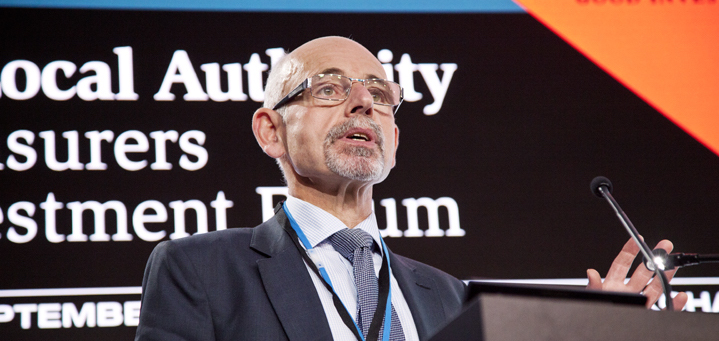
Local authorities are set to move more cash into property funds and lending to other councils, according to Room151’s annual Treasury Investment Survey.
The findings show local government finance professionals continue to expect the low interest rate environment to continue.
As revealed by Room151 last week, almost 60% of the 120 councils polled will increase their direct investments in commercial property either “somewhat” or “significantly” in the coming year.
The survey also shows that almost a third (31.9%) are expecting to increase lending to local authority peers.
Meanwhile, the same number (31.9%) are expecting to increase the amount of money held in property funds.
Councils will continue their flight from banks, with almost half (41.4%) of treasurers expecting to decrease their allocations next year.
Speaking at Room151’s Local Authority Treasury Investment Forum (LATIF) this week, John Kelly, head of client investment at investment manager CCLA, said the transition meant councils now faced a different risk profile.
He said: “With cash the risk is credit risk—this is voluntary risk and is about managing counterparties and quality of lending.
“With other instruments, they [councils] are facing market risk, which is not the same. It’s about: what will my investment be worth? The values are driven by emotion and sentiment and are hard to predict.”
The move to higher return investments reflects pessimism that interest rates are likely to rise significantly any time soon.
The survey found that more than three quarters (78.5%) of those surveyed said that they do not expect the Bank of England base rate to increase above 2% in the next five years.
Even the most optimistic segment—expecting rates to peak at between 3% to 4%—made up only 3.5% of those surveyed.
Jason Straker, head of the client portfolio management team for the global liquidity group at J.P. Morgan Asset Management, told delegates at LATIF: “We don’t expect rates to climb.
“A great example of the situation is that the central bank of Austria just issued a government bond at 2.1% with a duration of 100 years. What is incredible is that they expected there to be enough interest that people would want the certainty at such a low rate.
“They were right—it was over-subscribed three times over.”
Other areas identified as significant destinations for investments include corporate bonds or corporate bond funds, with 17.2% expecting to increase allocations in this asset class.
Certificates of deposit were chosen by 13.8% as an area which could potentially see a rise, with 12% selecting covered bonds.
The Room151 survey found that of those councils that expect to “significantly increase” direct investment in property, 80% will do so to generate revenues.
Among those authorities preparing to “somewhat” increase their spending on property, revenue generation is the prime reason for 70%.
The research also found approaching half of all councils (42%) surveyed have made direct investment in commercial property in the last year.











